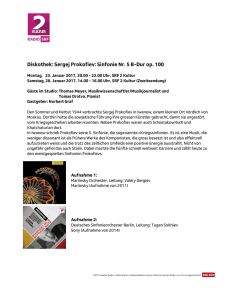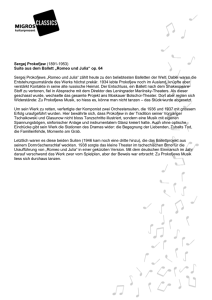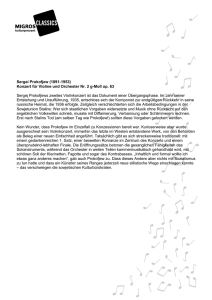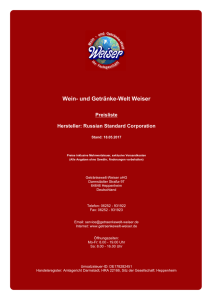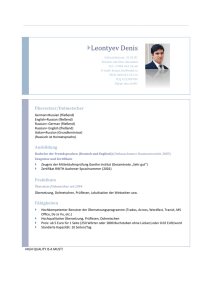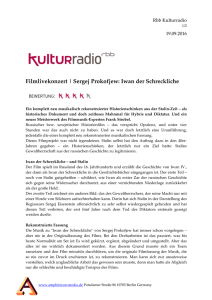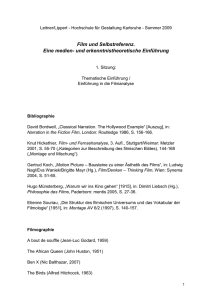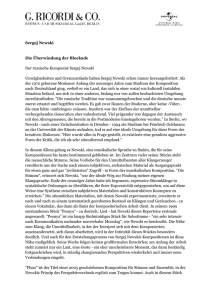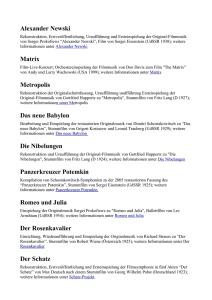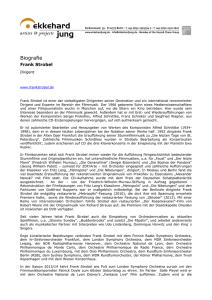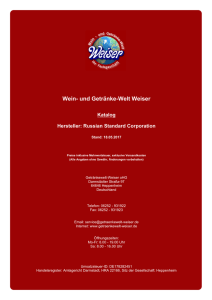ALEXANDER NEWSKI (UdSSR, 9 ) ALEXANDER NEVSKY (USSR
Werbung
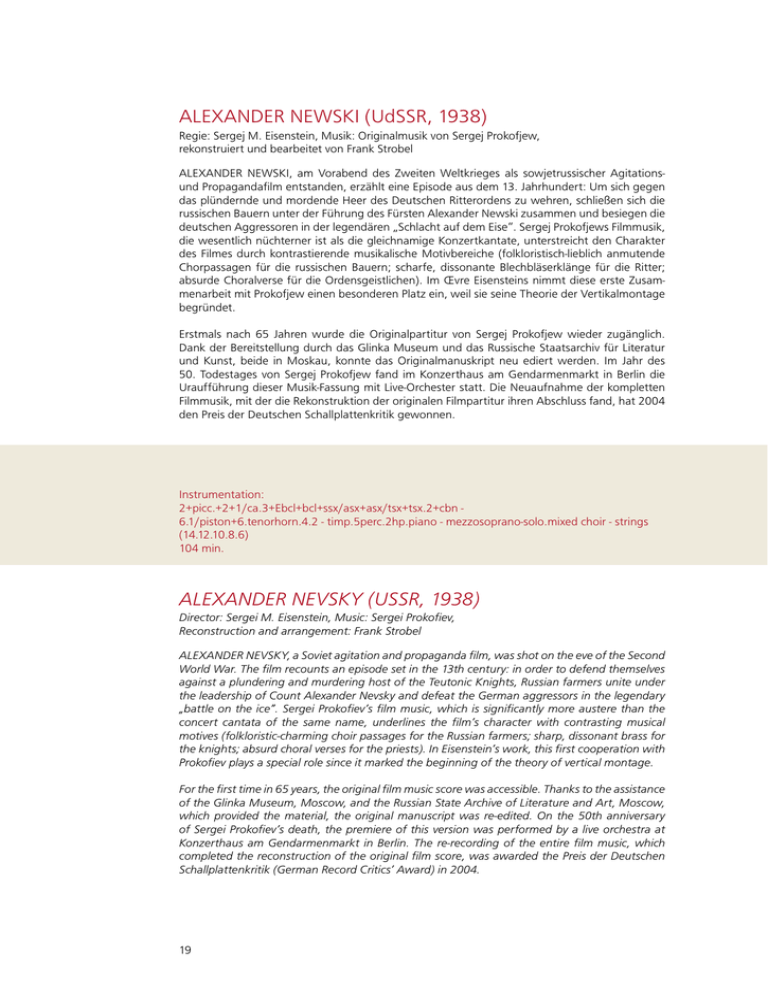
ALEXANDER NEWSKI (UdSSR, 1938) Regie: Sergej M. Eisenstein, Musik: Originalmusik von Sergej Prokofjew, rekonstruiert und bearbeitet von Frank Strobel ALEXANDER NEWSKI, am Vorabend des Zweiten Weltkrieges als sowjetrussischer Agitationsund Propagandafilm entstanden, erzählt eine Episode aus dem 13. Jahrhundert: Um sich gegen das plündernde und mordende Heer des Deutschen Ritterordens zu wehren, schließen sich die russischen Bauern unter der Führung des Fürsten Alexander Newski zusammen und besiegen die deutschen Aggressoren in der legendären „Schlacht auf dem Eise“. Sergej Prokofjews Filmmusik, die wesentlich nüchterner ist als die gleichnamige Konzertkantate, unterstreicht den Charakter des Filmes durch kontrastierende musikalische Motivbereiche (folkloristisch-lieblich anmutende Chorpassagen für die russischen Bauern; scharfe, dissonante Blechbläserklänge für die Ritter; absurde Choralverse für die Ordensgeistlichen). Im Œvre Eisensteins nimmt diese erste Zusammenarbeit mit Prokofjew einen besonderen Platz ein, weil sie seine Theorie der Vertikalmontage begründet. Erstmals nach 65 Jahren wurde die Originalpartitur von Sergej Prokofjew wieder zugänglich. Dank der Bereitstellung durch das Glinka Museum und das Russische Staatsarchiv für Literatur und Kunst, beide in Moskau, konnte das Originalmanuskript neu ediert werden. Im Jahr des 50. Todestages von Sergej Prokofjew fand im Konzerthaus am Gendarmenmarkt in Berlin die Uraufführung dieser Musik-Fassung mit Live-Orchester statt. Die Neuaufnahme der kompletten Filmmusik, mit der die Rekonstruktion der originalen Filmpartitur ihren Abschluss fand, hat 2004 den Preis der Deutschen Schallplattenkritik gewonnen. Instrumentation: 2+picc.+2+1/ca.3+Ebcl+bcl+ssx/asx+asx/tsx+tsx.2+cbn 6.1/piston+6.tenorhorn.4.2 - timp.5perc.2hp.piano - mezzosoprano-solo.mixed choir - strings (14.12.10.8.6) 104 min. ALEXANDER NEVSKY (USSR, 1938) Director: Sergei M. Eisenstein, Music: Sergei Prokofiev, Reconstruction and arrangement: Frank Strobel ALEXANDER NEVSKY, a Soviet agitation and propaganda film, was shot on the eve of the Second World War. The film recounts an episode set in the 13th century: in order to defend themselves against a plundering and murdering host of the Teutonic Knights, Russian farmers unite under the leadership of Count Alexander Nevsky and defeat the German aggressors in the legendary „battle on the ice”. Sergei Prokofiev’s film music, which is significantly more austere than the concert cantata of the same name, underlines the film’s character with contrasting musical motives (folkloristic-charming choir passages for the Russian farmers; sharp, dissonant brass for the knights; absurd choral verses for the priests). In Eisenstein’s work, this first cooperation with Prokofiev plays a special role since it marked the beginning of the theory of vertical montage. For the first time in 65 years, the original film music score was accessible. Thanks to the assistance of the Glinka Museum, Moscow, and the Russian State Archive of Literature and Art, Moscow, which provided the material, the original manuscript was re-edited. On the 50th anniversary of Sergei Prokofiev’s death, the premiere of this version was performed by a live orchestra at Konzerthaus am Gendarmenmarkt in Berlin. The re-recording of the entire film music, which completed the reconstruction of the original film score, was awarded the Preis der Deutschen Schallplattenkritik (German Record Critics’ Award) in 2004. 19 Premiere: Berlin, Konzerthaus am Gendarmenmarkt, 16 October 2003 Rundfunk-Sinfonieorchester Berlin; Frank Strobel A ZDF/ARTE coproduction in conjunction with Deutschlandradio Kultur and Rundfunk-Sinfonieorchester Berlin Russian premiere: Moscow, Bolshoi Theatre, 27 November 2004 Rundfunk-Sinfonieorchester Berlin; Frank Strobel Realised under the auspices of the Goethe Institut, financed by the cultural foundation of the German government, the Federal Foreign Office and the Russian Ministry of Culture 20
